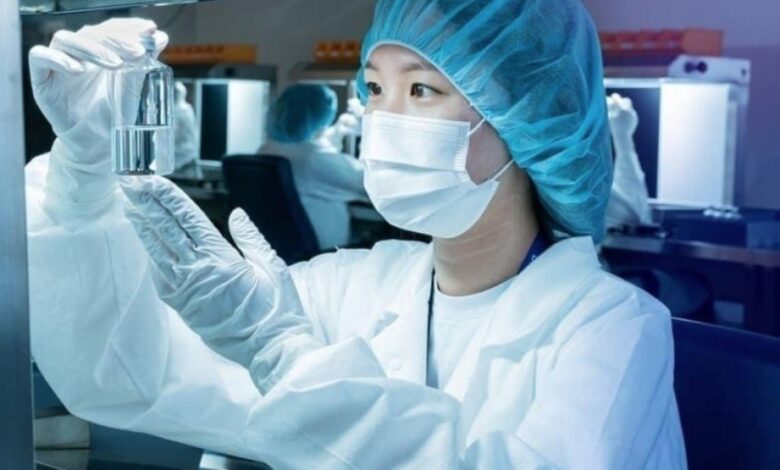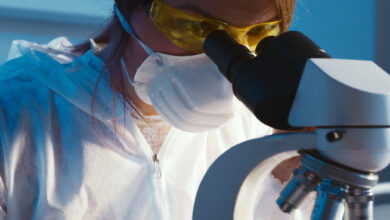CDMO Samsung Biologics’ CEO Outlines Plans for a Sustainable Future

John Rim, the president and CEO of contract development and manufacturing organization (CDMO) Samsung Biologics, is focused on growing the company sustainably. Samsung Biologics recently released its second annual environmental, social, and governance (ESG) report, which outlines the CDMO’s commitment to sustainability initiatives and reducing its greenhouse gas emissions. In a recent interview, Rim explained some of the report’s details, highlighting Samsung Biologics’ sustainability efforts in 2021 and its plans for the future.
“With our mission to create a sustainable and enduring value for all, we are continuing to grow based on our three core pillars of our multidimensional growth plan, which includes expanded manufacturing capacity, continued advancements in business portfolio, and a greater global footprint,” said Rim. “We are actively looking into implementing more environment-conscious practices and technology across our entire business to become a ‘green CDMO partner.’”
2021 Achievements
“We made great progress last year but of course, there’s much more to be done,” said Rim when asked about the CDMO’s achievements in 2021.
Rim explained that Samsung Biologics established an ESG Committee within its board of directors in February 2021. This committee oversees Samsung Biologics’ plans for sustainable growth and monitoring progress toward meeting ambitious emissions reduction targets and other environmental goals.
In addition to internal monitoring by the ESG committee, Samsung Biologics was recognized by several outside organizations for its sustainability efforts in 2021.
The CDMO became part of the Dow Jones Sustainability Index, which includes a select group of companies that have demonstrated a commitment to sustainability.
For Rim, Samsung Biologics’ inclusion in the DJSI “is especially significant since this year, 12.7%, or 322 companies of 2,544 evaluated across the globe, have made it to the DJSI World index. Of them, 21 were from Korea.”
Samsung Biologics also received a Grade A rating from the Korea Corporate Governance Service in environmental management, social responsibility, and governance structure. It received several certifications from the International Organization of Standardization, including ISO 22301 (business continuity management system), ISO 45001 (occupational health and safety management system), ISO 14001 (environmental management system), and ISO 50001 (energy management system).
“This was a great achievement since we are continuously striving to satisfy international and local regulators’ and clients’ requests to minimize environmental impact and ESH [environment, safety, and health] risks from our business,” said Rim.
Sustainability Initiatives
As part of its plans for sustainable growth, Samsung Biologics joined several initiatives dedicated to reducing greenhouse gas emissions, proactively addressing climate change, and fostering sustainable development across industries.
The CDMO took on a prominent role in the Sustainable Markets Initiative, which is focused on aligning economic value with socially and environmentally friendly business practices. Samsung Biologics is the sole CDMO representative on the SMI Health Systems task force, which is composed of leaders from across the healthcare industry, including executives from AstraZeneca, GSK, Merck, Roche, Sanofi, and Novo Nordisk, as well as nonprofit and governmental organizations such as the World Health Organization, UNICEF, NHS England, and the Sustainable Healthcare Coalition.
“The Health Systems task force is committed to delivering action in three priority areas through the establishment of working groups: digital health care, supply chains, and patient care pathways,” said Rim. “We are leading the supply chains working group with the aim to work with suppliers to decarbonize upstream product supply chains, with a focus on renewable energy, clean heat, green logistics, and common supplier standards.”
In addition to SMI, Samsung Biologics is adhering to strict emissions monitoring and reporting standards as part of the Carbon Disclosure Project. As the CDMO continues to expand, it’s committing to thorough monitoring and risk assessment at existing facilities and those in development.
Samsung Biologics also joined the Frontier 1.5D project with the goal of developing a climate risk management model in line with the South Korean government’s 2050 Carbon Neutral Strategy. The Frontier 1.5D project is an international project dedicated to limiting global temperature rises to less than 1.5 degrees Celsius from pre-industrial levels.
“We will determine the risks and opportunities within our business to address climate change and then analyze the financial impact to adjust its response policies in relation to factors such as the reduction of [greenhouse gas] emissions,” said Rim.
Reducing Emissions Across the Health Care Supply Chain
Rim recognizes that the healthcare industry is a significant contributor to GHG emissions, noting that the industry is responsible for 4% of global carbon dioxide emissions. He explained that, of the 2.4 gigatons of CO2 emitted by the healthcare industry, roughly 50% is created in the upstream supply chain rather than in the manufacturing process. For Samsung Biologics, these supply chain emissions are tracked as Scope 3 emissions, and according to Rim, they account for nearly 80% of the CDMO’s total GHG emissions.
To address this issue, Samsung Biologics outlined ambitious Scope 3 emissions targets in its ESG report. According to the report, Samsung Biologics’ aim is to achieve a 25.7% reduction of Scope 3 emissions by 2026. The company is also targeting its more direct Scope 1 and Scope 2 emissions, achieving a reduction of 32.3% from 2020 to 2021 and targeting a goal of a 54.3% reduction by 2026.
“As part of our ‘Driven. For Life.’ mission, we’ve put all our focus around greenhouse gas reduction and combating climate change because of the visible impact it is having on patients and the environment,” said Rim.
Multidimensional, Sustainable Growth
Samsung Biologics’ increased focus on ESG issues comes as the company has grown at a record rate in recent years. After posting revenue growth of 35% in 2021, the CDMO reported 96% year-over-year revenue growth in the first quarter of 2022.
Amid this financial growth, Samsung Biologics is constructing several new facilities. Its fourth plant at its Songdo, South Korea headquarters will be partially operational by October 2022, and the plant will provide 256,000 liters of capacity when it is fully operational in 2023. The CDMO also recently finished construction of a mRNA vaccine production suite and is planning to construct a second Bio Campus that will house a multimodal plant and an open innovation center to foster biotech collaboration.
As Samsung Biologics continues to pursue its multidimensional growth strategy, Rim stressed that the CDMO will not lose sight of its environmental targets.
“The publication of our annual ESG report reinforces the progress we’ve made, while keeping us focused on the long-term goals we’ve set,” he said. “Our sustainability initiatives reinforce the connection between the work we do and how we fulfill our mission, while delivering on our core values of always putting people and the environment first.”



